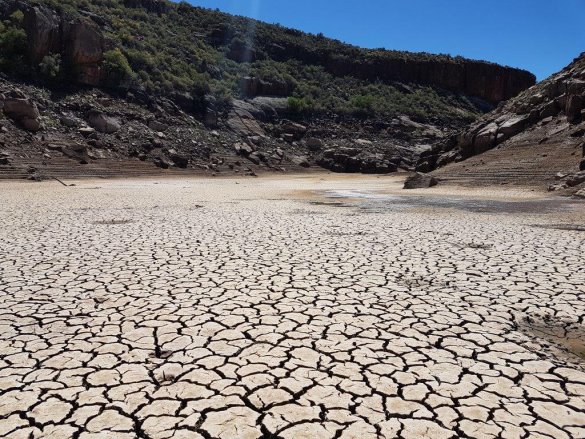The Western Cape Government remains concerned about the continued and future risk of drought in the province.
Despite recent relief in large parts of the province, where good rainfall has seen dam levels improve, some areas of the Western Cape remains in the throes of a severe drought.
These are primarily in the Karoo regions and more widespread in the agriculture sector of the province.
“Globally the 17th of June is known as World Day to Combat Desertification and Drought and I want to take this opportunity to urge citizens in the province to be mindful of how drought and desertification could further damage and degrade our environment,” says Anton Bredell, the Minister for Environmental Affairs and Development Planning in the Western Cape.
According to the UN, Environmental Degradation is the persistent degradation of dryland ecosystems by human activities — including unsustainable farming, mining, overgrazing and clear-cutting of land — and by climate change.
Wind and water erosion aggravate this damage, carrying away valuable topsoil and leaving behind a highly infertile mix of dust and sand. It is the combination of these factors that transforms degraded land into desert.
“Even though we are grateful for the recent rains that have positively impacted our dams, and look forward to more wet months over the winter - these rains can cause flooding in some areas due to current state or degradation of land, caused by the severe drought we suffered over the past years. I’d like to take this opportunity to encourage citizens to help play their part this World Day to Combat Desertification and Drought by planting trees, enriching the soil, and continue to save water and implement various water management tactics such as rain water harvesting and reuse of treated water for watering plants, flushing toilets, etc.,” said Bredell.
The UN has identified Desertification as a global issue, with serious implications worldwide for biodiversity, eco-safety, poverty eradication, socio-economic stability and sustainable development.
Karen Shippey, Chief Director for Environmental Sustainability at DEA&DP said: “During the 1992 Rio Earth Summit, Desertification, along with climate change and the loss of biodiversity, were identified as the greatest challenges to sustainable development. It is vital that citizens, the private and public sector work together to combat the effects of climate change and help mitigate further degradation of our land. We need to build a more sustainable environment for our future generations.”
The Western Cape Government has a cabinet endorsed strategy “Western Cape Climate Change Response Strategy 2014” which outlines the approach for the government and region in partnership with numerous stakeholders.
Read more about climate change response strategy here.
ENDS
PHOTO CREDIT: James-Brent Styan

